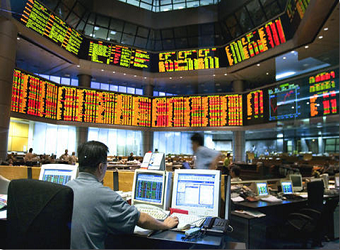Asian markets wavered on Tuesday, following Wall Street’s mixed close as the Federal Reserve kicks off its two-day meeting and European political uncertainty weighs on sentiment.
Market expectation for a U.S. rate hike is at 95.2 percent, according to CME Group’s FedWatch Tool at 11am HK/SIN.
Ahead, traders will be cautious as they eye Federal Open Market Committee’s upcoming decision and look for clues on how quickly the U.S. central bank is planning to tighten monetary policy.
“Solid U.S. employment growth of 235,000 in February, a fall in unemployment and a slight rise in wages growth keep the Fed on track to raise interest rates again this coming Wednesday,” said Shane Oliver, head of investment strategy and chief economist at AMP Capital, in a weekly note.
“However, with U.S. monetary policy a long way from being tight, future rate hikes likely to be gradual and US economic data likely to be solid we don’t see it derailing the bull market in shares,” Oliver said.
But aside from the Fed, European political uncertainty could also affect Asian equities by weighing on sentiment, Margaret Yang, market analyst at CMC Market said in a Tuesday note.
She cited the Dutch elections on Wednesday as a risk, as “Netherland’s far-right Party for Freedom could emerge as one of the largest parties.”
In addition, the possibility of U.K. Prime Minister Theresa May triggering Article 50 to formally begin the Brexit process and Scotland holding another independence referendum could also weigh on Asian markets and currencies.
The euro was trading at $1.0654 at 11 am HK/SIN, weaker compared to levels around $1.05 seen last week, while the pound was also weaker against the greenback, at $1.2202.
Over in Japan, the Nikkei 225 dipped 0.07 percent.
Toshiba plunged 8.1 percent by 11:22 am HK/SIN after the company announced it would postpone earnings filings again due to the need for more time with auditors to review its U.S. nuclear subsidiary probe, Reuters reported.
The Japanese conglomerate will hold a news conference later at 3pm HK/SIN.
The Australian benchmark ASX 200 slipped 0.04 percent, after National Australia Bank’s monthly business survey of more than 400 firms showed that the index of business conditions fell seven points to nine in February.
All sectors except retail reported improved conditions last month.
South Korea’s Kospi was up 0.62 percent, even as the country remains engulfed in political uncertainty after the impeachment of President Park Geun-hye last Friday.
Hyundai Engineering signed a deal with an Iranian investment fund on Sunday for a 3.2 billion euro ($3.2 billion) petrochemical project, which is awaiting financing by Korean banks, Reuters reported.
Shares of Hyundai Engineering were up 0.21 percent, earlier rising as much as two percent.
On the mainland, Shanghai composite added 0.11 percent while the Shenzhen composite gained 0.15 percent.
China’s January to February economic data painted a rosier picture of the world’s second largest economy. Industrial output grew by 6.3 percent in the first two months of the year, from the same period a year before, fixed asset investment grew 8.9 percent on-year.
Private investment rose by 6.7 percent from 3.2 percent in the same period last year.
But retail sales growth missed expectations, up just 9.5 percent in January and February on-year, lower than analysts’ median forecast of a 10.5 percent increase.
Goldman Sachs upgraded China’s stocks to overweight on Monday, saying that the increasing producer price index will translate to better corporate revenues and easing credit stress in the short-term.
The investment bank also added that Chinese banks had brighter credit outlook and loan pricing.
Over in Hong Kong, the Hang Seng index was flat.
On the economic data calendar, China will release its fixed asset investment, industrial production and retail sales and Australia will release its NAB Business Confidence survey.
In the broader currency market, the greenback traded at 101.41 against a basket of currencies, above levels around 101.2 seen yesterday. At 11:23 am HK/SIN, the yen was weaker against the dollar at 114.83, while the Australian dollar was at $0.7560.
Oil prices began to reverse losses on Tuesday Asian time. Brent crude futures added 0.12 percent to $51.29 a barrel, while U.S. crude was up just 0.04 percent to $48.42.
Stateside, the Dow Jones industrial average fell 0.1 percent to close at 20,881.48. The S&P 500 index inched up 0.04 percent to close at 2,373.47 and the Nasdaq added 0.24 percent to finish at 5,875.78.
Source: CNBC


